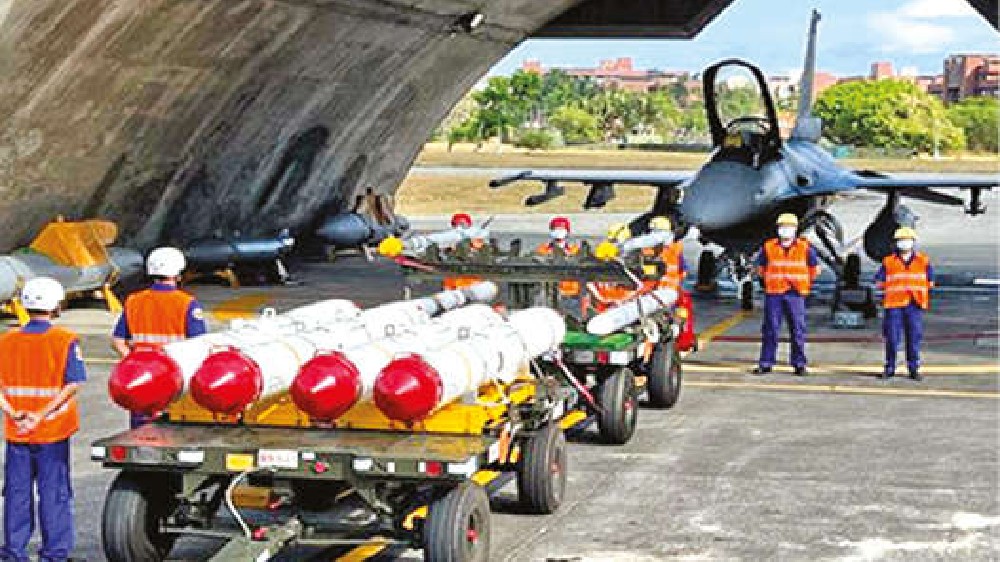How Ukraine pushed Taiwan to militarise
Since March, the NGO has been offering civil defense programs which train participants to administer first aid, treat trauma, conduct search and rescue operations, and locate shelters during emergency situations.

As the war in Ukraine enters its seventh month, people in Taiwan are starting to feel an urgency to be prepared for all eventualities amid escalating military pressure from Beijing. In recent months, authorities and civil society organisations in Taiwan have initiated a series of reforms and island-wide trainings that are designed to enhance Taiwanese people’s combat readiness and their abilities to deal with any potential crises. One of the organisations at the leading edge of this effort is Forward Alliance, an NGO aimed at improving Taiwan’s national resilience. Since March, the NGO has been offering civil defense programs which train participants to administer first aid, treat trauma, conduct search and rescue operations, and locate shelters during emergency situations.
“We are training civilians in crisis response,” said Enoch Wu, founder of Forward Alliance. “It’s about how to keep communities running and the trainings help prepare citizens against man-made or natural crises.” The training programs were originally scheduled to kick off in August, but the Ukraine war exacerbated a sense of urgency across Taiwan, so Forward Alliance decided to move its training to March as part of its responses to the increased demand from the Taiwanese people.
“We’ve received very strong demands from the communities and citizens. People want to know how they can help each other and they want to know how they can serve the communities, even when we are not in uniform,” Wu told DW. “We have modulised our training, so more people can attend. We have trained more than 1,000 people but that’s not enough. We know public resilience has to be a whole society’s effort and we need to nationalise these trainings,” he added. The alliance organised one training session in Taiwan’s second-largest city, Taichung, on August 27, for which dozens of people signed up.
Retirees, housewives, young professionals and students crowded a local community center to learn basic first aid skills. Most attendees said the war in Ukraine and Taiwan’s sensitive political status pushed them to take part in the workshop. “I decided to join the training because of the war in Ukraine,” said Cherri Lee, an education professional in her 40s. “People in Taiwan have been enjoying peace for a long time, but I don’t think that’s an excuse for us to remain complacent about the rising threats posed by China.” “Having a place to get information about first aid and knowing what to do when things happened and how to react when emergencies happen will help to inform people that Taiwan may not be as safe as they think,” she added. Another participant told DW that it was important for ordinary citizens to realise that they could also become part of the first responder teams.
“I think it’s wonderful that we can get the chance to learn how to help other people whenever there is a crisis,” said Jenny Chen, a school counsellor in her 50s. “With the war in Ukraine, I think there is more awareness about how vulnerable Taiwan can be. We need to be vigilant no matter what.”
Many experts pointed out that civil defense training will have a positive impact on society’s emergency response — whether it’s to a natural disaster or a military conflict.
“These training sessions can give Taiwanese people a sense of urgency, and the first aid training is very practical and can be effective in both natural disasters and wars,” said Tzu-yun Su, an analyst at the Institute for National Defense and Security Research in Taiwan. “It’ll be much easier for people who have gone through these training sessions to remain calm during emergencies, and they can also help to reassure people around them. As people across Taiwan begin to understand the importance of these training, I’m sure the programs will be expanded in the future. This is a very good start,” he told DW.
Visit news.dtnext.in to explore our interactive epaper!
Download the DT Next app for more exciting features!
Click here for iOS
Click here for Android



